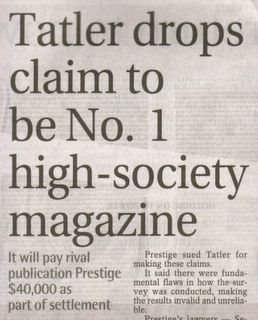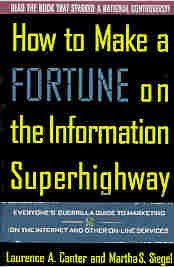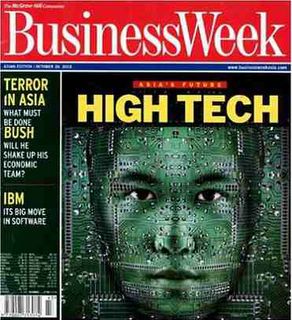
Singapore is not a free country. Normally you don't notice this. It's a transparent society, you can move around freely and you can write what you want as long as it's not about politics. Actually, not a bad place at all. So where's the lack of freedom?
In daily life, mainly in the fact that you're not allowed to form a society or association, or speak in public, unless you have the explicit permission of the government. Which doesn't bother you very often, since most people don't make a habit of that.
There are the little things, of course. As a member of the Association of Dutch Businessmen I once asked the Chairman why his monthly foreword in the society's magazine was in English, while it was written by a Dutchman and only read by countrymen? The answer was simple: had to be in English, otherwise the censors couldn't read it.
But now it's General Election time, and that's when the lack of democracy really shows. Today, in the face of the impending election campaigns Singapore's Senior Minister of State for Information, Communications and the Arts, Dr Balaji Sadavisan, laid down the law. After all, we don't want misunderstandings, what with all those new media around.
So here are the rules: campaigning is allowed in chatrooms, discussion forums and websites, but not in podcasts, videocasts, or blogs. Furthermore, websites and blogs that want to make a habit of publishing political contents (the occasional outcry is apparently exempt from this, so this post is probably OK) have to be registered with the Media Development Authority (MDA). The MDA will monitor these sites and screen them for election advertising, which is not allowed.
Email and SMS can be used under similar constraints, but Dr Balaji added ominously that "However, individuals seeking to use mass email and mass SMS to influence people, or to affect the outcome of an election, should realize that they are still governed by the laws of the land. And these include libel."
These last four words carry special weight in a country where opposition leaders in the past have routinely been driven into bankruptcy by libel suits brought by senior members of the ruling party, the PAP.
Interesting
modus operandi for a country that seeks to play a prominent role in the use of new media.
(Source: The Straits Times)






























